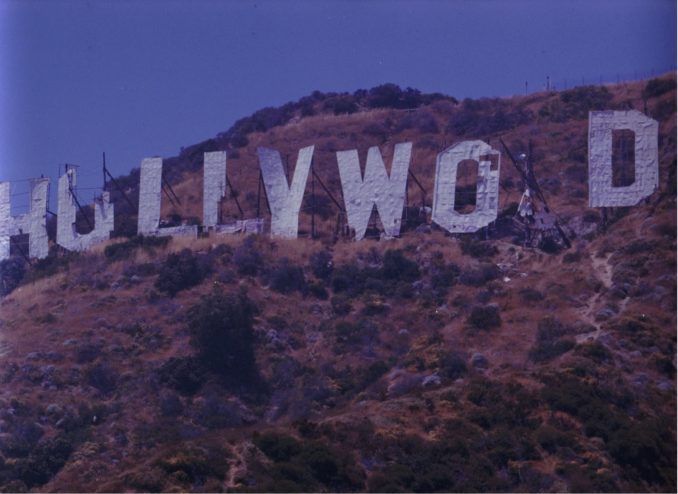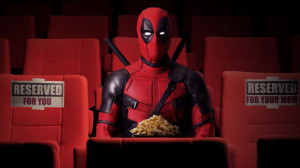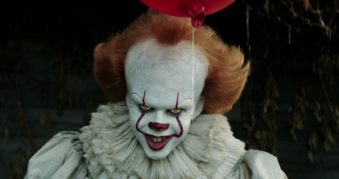
If you like films, you certainly heard by now that this was a rotten summer for movies. Potential tent poles died on the vine and old reliable standards under performed. Grosses were far below projections. And since the studios always thinks it’s two or three bad seasons away from the death of Hollywood, panic ensues, articles are written and fingers are pointed. Like a film noir detective, the studios and producers tried to root out dastardly villains that were trying to kill them. Suspects include everything from the long lead time between a film’s theatrical release and when it comes to digital streaming, the lucrative foreign markets starting to make their own blockbusters that sap grosses from American ones, and even the review aggregator site Rotten Tomatoes.
But this isn’t a murder mystery. It’s a case of ritual suicide. The film industry is killing itself, and it is either too proud or too blind to see it.
Don’t hate the reviewer, hate the reviewed
“The worst thing that we have in today’s movie culture is Rotten Tomatoes. I think it’s the destruction of our business. I have such respect and admiration for film criticism. When I was growing up film criticism was a real art. And there was intellect that went into that. And you would read Pauline’s Kael’s reviews, or some others, and that doesn’t exist anymore. Now it’s about a number. A compounded number of how many positives vs. negatives. Now it’s about, ‘What’s your Rotten Tomatoes score?’ And that’s sad, because the Rotten Tomatoes score was so low on Batman v Superman I think it put a cloud over a movie that was incredibly successful. People don’t realize what goes into making a movie like that. It’s mind-blowing. It’s just insane, it’s hurting the business, it’s getting people to not see a movie. In Middle America it’s, ‘Oh, it’s a low Rotten Tomatoes score so I’m not going to go see it because it must suck.’ But that number is an aggregate and one that nobody can figure out exactly what it means, and it’s not always correct.”
That quote is from Brett Ratner, from his address to the Sun Valley Film Festival back in March. The screed has gotten a little more mileage after the summer of doom, and rumors have it that many studio executives echo Ratner’s belief.
Which begs the question, are they all crazy?
 For those of you who don’t know, Rotten Tomatoes is a review aggregator site. It doesn’t generate reviews, it compiles reviews from reputable sources (sites need to have reviewed 100 films in the last two years) and calculates how many good and how many bad reviews a film has. If 60% or more of your reviews are good, you get flagged “Fresh.” So, if you are one of the “nobodies” who couldn’t figure that out, well, there you go.
For those of you who don’t know, Rotten Tomatoes is a review aggregator site. It doesn’t generate reviews, it compiles reviews from reputable sources (sites need to have reviewed 100 films in the last two years) and calculates how many good and how many bad reviews a film has. If 60% or more of your reviews are good, you get flagged “Fresh.” So, if you are one of the “nobodies” who couldn’t figure that out, well, there you go.
In other words, Rotten Tomatoes doesn’t review films. It just compiles all the reviews from those film critics Ratner admires and presents their opinions in a format that is easily digested by the general public. So hating on Rotten Tomatoes is a classic case of killing the messenger. Don’t be mistaken, the real reason that Ratner is angry is because Rotten Tomatoes lets audiences know how bad his films are. Everything else is just spin to make you think otherwise.
But is it often incorrect? While there has to be judgement calls on reviews that straddle the line between good and bad, in this day and age of letter grades, thumbs up and thumbs down, and star ratings, there isn’t a lot of wiggle room for a lion’s share of the reviews. And the site provides links to all the reviews it uses to come up with its score so you can check their math if you wish.
While studios must be angry that Tomatometer scores appear on Fandango and when films are searched on Google, there have been studies that say that in the grand scheme of things, RT scores have little affect on grosses. But you don’t need math to tell you that. There have been plenty of successful films that have received bad reviews and bad Tomatometer scores. Like the Transformers series, the Fifty Shades of Grey films and, most recently, The Emoji Movie. That is a film that was one lukewarm review away from getting a 0% Fresh before it opened and it made triple its budget back worldwide.
However, it is somewhat disturbing that Hollywood would blame a website that lets moviegoers know what films a majority of film critics dislike instead of the fact that a majority of film critics dislike their movies. I mean, that attitude is not that outlandish, as mentioned above, they have put out dreck that has made millions. But if they are concerned with people staying away from their output due to poor Tomatometer scores, there’s a simple solution for that–make better movies. But that seems to be too much work. And, as I said above, they didn’t have to work all that hard on quality in the past, so why should they start now.
But they really should pay attention to quality. Why? Because audiences have changing tastes. The novelty of two giant robots beating the motor oil out of each other would eventually wear off. If there’s not a great story to keep audiences around, the audiences will eventually leave.
The focus on how reviews are presented over why the films are getting bad reviews is one reason why I lack sympathy for the studios’ plight. But there are many more reasons why Hollywood is in the state it’s in. Reasons under the studios’ control that show they brought this plight on themselves.
Show Business Is Not Run Like A Business At All
Buy low, sell high. You don’t have to be Andrew Carnegie to know that is one of the fundamental tenets of business. Make something for a little money as you can and sell it for as much money as you can.
Hollywood is pretty good with the second part of that equation. IMAX and 3D formats are supported mainly because the studios can charge more money for showing a film in them. But the other part of the equation? The one about spending money wisely? Not so much.
The average summer blockbuster typically has a budget between $200 million and $250 million. Rule of thumb states that a film has to at least make twice its budget back in order to be successful. That means a film has to make $500 million worldwide just to be a moderate success.
There have been 175 films in the history of film that have reached $500 million or higher in worldwide grosses. Most were released in the last twenty years. So you can see why studios would feel that the risk was worth the reward. But they’d be able to make more money if budgets were smaller.
Now, I can almost hear some of you say, “Budgets need to be that big to afford big name stars and pricey special effects!” But do they? Really?
 Let’s talk about Johnny Depp, a big name star. He, of course, starred in what is viewed by many as one of the summer’s biggest disappointments, Pirates of the Caribbean: Dead Men Tell No Tales. Let me throw out a number regarding Mr. Depp: $330,632,862. Is this the amount of money Depp’s films made for his studios over the last five years? No. It’s how much his domestic grosses came out short of covering the budgets for his last seven studio films.
Let’s talk about Johnny Depp, a big name star. He, of course, starred in what is viewed by many as one of the summer’s biggest disappointments, Pirates of the Caribbean: Dead Men Tell No Tales. Let me throw out a number regarding Mr. Depp: $330,632,862. Is this the amount of money Depp’s films made for his studios over the last five years? No. It’s how much his domestic grosses came out short of covering the budgets for his last seven studio films.
Now I didn’t include Yoga Hosers in the mix, because that was made for such a small amount that it was practically all profit. Neither did I include any film he had a cameo in, because he shouldn’t get any credit or blame for a film he wasn’t credited in or the latest Pirates film, which is still making money. And it is only domestic and doesn’t include foreign grosses in the total. But even with those overseas tallies added in and using the yardstick of a film needing to double its budget to be successful, he only has one true hit out of his last seven major films: Into The Woods, a film where he had a smaller role as part of an ensemble cast. The other six? Flop after flop after flop with the occasional disappointment thrown in there for good measure. And, it needs to be said, Mortdecai is one of those flops. The Lone Ranger too.
It seems like Johnny Depp has fallen out of favor with the film-going public. Whether that is because of the allegations of spousal abuse pinned on him or the tales of lavish spending that were leaked as part of his lawsuit against his former managers or just because it seems that for the last decade and a half he has coasted through his roles by using make-up and costumes to do his acting for him, he can’t carry an underwhelming script to blockbuster success anymore. However, Hollywood hasn’t caught on to this. They are still giving him $20-35 million per film up front plus a portion of the back end based on what he used to do in the 2000s. He’s been added to the Fantastic Beasts and Where to Find Them franchise for goodness sakes! That franchise might be able to survive having Depp in the film, but for the others, dedicating 10%–or more–of your budget to one actor who delivers that poor of a return on your investment is a recipe for a horrible summer.
 And as for pricey special effects, I offer Deadpool as a counterpoint. That film was made for $58 million, one-forth to one-fifth of what your typical superhero film is made for. Could you tell the difference? It had big set pieces, huge explosions, and even a completely CGI character. Granted, the film jokes about only being able to afford two X-Men and Colossus never has an expensive-to-computer-animate scene where he turns back into a human from his metal form, but there is nothing that film that looks or feels cheap.
And as for pricey special effects, I offer Deadpool as a counterpoint. That film was made for $58 million, one-forth to one-fifth of what your typical superhero film is made for. Could you tell the difference? It had big set pieces, huge explosions, and even a completely CGI character. Granted, the film jokes about only being able to afford two X-Men and Colossus never has an expensive-to-computer-animate scene where he turns back into a human from his metal form, but there is nothing that film that looks or feels cheap.
This wasn’t a noble experiment by Deadpool‘s filmmakers. The film had to keep to a tight budget pretty much so it could be made. But by spending money smartly, it made more than 13 times its budget back where other successful blockbusters are lucky to make 3 times their budget back. Buy low, sell high.
The false promise of $1 billion.
Disappointment is in the eye of the beholder. I’m sure we all know people who are never satisfied. That whatever they get, it is never enough. That describes Hollywood.
 Two films that Hollywood is calling disappointments are the previously mentioned Pirates of the Caribbean: Dead Men Tell No Tales and Transformers: The Last Knight. And while the two films rank as one of the lowest grossing installments of either series and their domestic tallies did not cover their budgets, when overseas returns are added in Pirates bought in more than three times its $230 million budget and Transformers fell just short of tripling the $217 million Paramount put into it.
Two films that Hollywood is calling disappointments are the previously mentioned Pirates of the Caribbean: Dead Men Tell No Tales and Transformers: The Last Knight. And while the two films rank as one of the lowest grossing installments of either series and their domestic tallies did not cover their budgets, when overseas returns are added in Pirates bought in more than three times its $230 million budget and Transformers fell just short of tripling the $217 million Paramount put into it.
However, that wasn’t enough. both film series had two installments crack the $1 billion dollar plateau. In the studios’ minds, this year’s installments should have also made that much back, if not more. When they didn’t, they became “disappointments”.
In the history of film, there have only been 31 films that earned over a billion dollars worldwide. Of those 31, three, Avatar, Titanic and Star Wars: The Force Awakens, made over $2 billion dollars. In the grand scheme of things, $1 billion dollars is not easy to get. Hollywood doesn’t realize that and views that lofty goal as essentially a given for a lot of their films. And when the film doesn’t make that unrealistic summit–when they only have a very successful film instead of one of the most successful ones of all time–they panic.
 This is not new. 2014’s Amazing Spider-Man 2 made two and a third to over three times it budget back, depending on what budget estimate you believe in. But since Sony believed that the beloved character would be enough to overcome a crowded plot and underdeveloped characters to make a $1 billion, its earnings were viewed as a disappointment and into reboot city the franchise went. Warner Brothers thought the appeal of a Bruce Wayne vs Clark Kent slobber knocker would be all it needed to get Batman v. Superman: Dawn of Justice past the $1 billion bar. When it only made around three times its budget back instead, executive reshuffling at Warners took place and blame was aimed not on the plot holes you can drive a truck through nor characterization that changed without reason to whatever the story needed at that time, but at critics. Ratner’s comments about Rotten Tomatoes are especially lunk-headed when you take into consideration the months of harassment anyone who dared dislike BvS got.
This is not new. 2014’s Amazing Spider-Man 2 made two and a third to over three times it budget back, depending on what budget estimate you believe in. But since Sony believed that the beloved character would be enough to overcome a crowded plot and underdeveloped characters to make a $1 billion, its earnings were viewed as a disappointment and into reboot city the franchise went. Warner Brothers thought the appeal of a Bruce Wayne vs Clark Kent slobber knocker would be all it needed to get Batman v. Superman: Dawn of Justice past the $1 billion bar. When it only made around three times its budget back instead, executive reshuffling at Warners took place and blame was aimed not on the plot holes you can drive a truck through nor characterization that changed without reason to whatever the story needed at that time, but at critics. Ratner’s comments about Rotten Tomatoes are especially lunk-headed when you take into consideration the months of harassment anyone who dared dislike BvS got.
Now, this is all taking in consideration that the budget estimates for these films are close to what they really cost. Could the budgets be larger than the $300 million high-water mark estimates, so high that grosses in the neighborhood of $700 to $800 million would still not make a profit? Yeah, I’d believe Hollywood was that stupid. But in either scenario, it’s hard to feel sympathy for the studios for feeling disappointed. After all, if someone gave you $60 back after you handed them a twenty, would you hold out for $100?
Sequels are not the problem, knowing when to stop is. Adaptations are not the problem, knowing what adapt and how to adapt it is. Shared Universes are not the problem, knowing what universes should be shared is.
Whenever Hollywood hits a rough patch, certain journalists chime in to blame it on their love of sequels, remakes, adaptations and shared universes. They believe Hollywood is to blame for not promoting originality, and things will never get better until they do.
 What these journalists forget to mention is that the top ten films at the domestic box office so far this year are a remake of an adaptation, an adaptation which is a quasi-remake that is part of a shared universe, a sequel that is an adaptation and part of a shared universe, a reboot of an adaptation that is part of a shared universe, a sequel, a sequel that is part of a shared universe, another sequel, a remake of an adaptation, a dramatization of real world events, and a spin-off from a toy line adaptation. There was an original film in the top ten until this week (Get Out), but it was knocked out of the list by the remake of an adaptation (IT).
What these journalists forget to mention is that the top ten films at the domestic box office so far this year are a remake of an adaptation, an adaptation which is a quasi-remake that is part of a shared universe, a sequel that is an adaptation and part of a shared universe, a reboot of an adaptation that is part of a shared universe, a sequel, a sequel that is part of a shared universe, another sequel, a remake of an adaptation, a dramatization of real world events, and a spin-off from a toy line adaptation. There was an original film in the top ten until this week (Get Out), but it was knocked out of the list by the remake of an adaptation (IT).
So, considering that three of those top ten films have made over $1 billion worldwide, it’s obvious lack or originality is not a problem. People like the familiar up on their movie screens. Hollywood just have to get better at giving it to them.
Hollywood was never very good at letting sequels go. While there were exceptions, like the Nolan Dark Knight films, most studios don’t recognize the signs of a failing franchise until it’s too late.
While I do believe Pirates of the Caribbean: Dead Men Tell No Tales and Transformers: The Last Knight are not as big failures as others would have you believe, they did make less than previous installments. Disney and Paramount should take this as a sign that Captain Jack Sparrow be put out to sea and Optimus Prime be sent to that cinematic junkyard in the sky. Of course, this won’t happen. Pirates producer Jerry Bruckheimer said that a sixth film in the franchise was possible if it did well on home video and Paramount is already working on a Transformers spin-off featuring Autobot Bumblebee. They are at least getting a little bit smarter about that, as the budget for the spin-off is rumored to be only one-third that of The Last Knight.
2017 was a bad year in Hollywood for adaptations and remakes, though audiences nor reviews should be blamed. This was one of the most tone-deaf years for adaptations ever and all the blame for that lies with the filmmakers. This was the year when studios seemed overly desperate to jump start film franchises out of familiar concepts, only they seemed to have a pathological aversion to keep what made the familiar concept great in their adaptations.
 This was the year that Hollywood decided to adapt the classic manga Ghost in the Shell. While wildly popular, manga is still a fringe form of entertainment with the general public. Paramount decided to address this by turning the Asian protagonist into Scarlet Johansson. This is part of the institutionalized racism in Hollywood, who believe that audiences would not come out to see a big budget picture with an Asian lead. Well, they didn’t come out for Scarlett Johansson either, so what difference did it make? Was it worth alienating your target audience to try an get disinterested moviegoers in?
This was the year that Hollywood decided to adapt the classic manga Ghost in the Shell. While wildly popular, manga is still a fringe form of entertainment with the general public. Paramount decided to address this by turning the Asian protagonist into Scarlet Johansson. This is part of the institutionalized racism in Hollywood, who believe that audiences would not come out to see a big budget picture with an Asian lead. Well, they didn’t come out for Scarlett Johansson either, so what difference did it make? Was it worth alienating your target audience to try an get disinterested moviegoers in?
And you might think I would also talk about Valerian and the City of a Thousand Planets here, being that it is also a disappointing adaptation of a French graphic novel. But Hollywood is off the hook for that one–it was a French production. That’s one for a site called Le Buff de la Cine en Linge and an article there called “Cinema, c’est mort, peut-être.”
 It was a big year for failed TV adaptations, starting in March with the one-two punch of Power Rangers and CHiPs. Power Rangers are a cottage industry to themselves, with TV shows, toys, clothing and other merchandise. Most of the property’s charm comes from it’s low-rent, super campy style, frenetic action scenes and all-ages plot. The makers of the movie decided to chuck all that and make a more gritty, Marvel-esque superhero story out of it. Considering a variation on the classic style was airing on Nickelodeon, fans did really have to go see the movie that bore little resemblance to what they loved.
It was a big year for failed TV adaptations, starting in March with the one-two punch of Power Rangers and CHiPs. Power Rangers are a cottage industry to themselves, with TV shows, toys, clothing and other merchandise. Most of the property’s charm comes from it’s low-rent, super campy style, frenetic action scenes and all-ages plot. The makers of the movie decided to chuck all that and make a more gritty, Marvel-esque superhero story out of it. Considering a variation on the classic style was airing on Nickelodeon, fans did really have to go see the movie that bore little resemblance to what they loved.
CHiPs tried to follow in the footsteps of 21 Jump Street in making a comedic film out of a TV police procedural. The TV version wasn’t high art, but writer/director/star Dax Shepard’s take of laying gross-out comedy over a pedestrian plot wasn’t enough to bring people in. And neither Shepard nor Michael Pena had enough star power to make up the difference.
 Star power didn’t help the gross-out gags in Baywatch, though. The appeal of the TV show could be summed up in nine word: Playboy Playmates running on the beach in slow motion. Nobody outside of Germany tuned in exclusively to watch Mitch Buchannon every week. They tuned in for a jiggle fest. So when ads portrayed Dwayne Johnson’s Buchannon sniping with a mostly shirtless Zac Efron as they solved crimes, fans of the series knew they weren’t getting what they liked. And if they replaced the cheesecake with beefcake to try to gain more women in the audience, well, most women lost interest forever at the word “Baywatch.” It opened at #3 at the box office, and was in line to be a major flop before foreign markets rolled in, namely Germany and Austria where they worship David Hasselhoff as a god, to make it a modest hit, but perhaps not enough of one to generate the franchise Paramount was hoping for.
Star power didn’t help the gross-out gags in Baywatch, though. The appeal of the TV show could be summed up in nine word: Playboy Playmates running on the beach in slow motion. Nobody outside of Germany tuned in exclusively to watch Mitch Buchannon every week. They tuned in for a jiggle fest. So when ads portrayed Dwayne Johnson’s Buchannon sniping with a mostly shirtless Zac Efron as they solved crimes, fans of the series knew they weren’t getting what they liked. And if they replaced the cheesecake with beefcake to try to gain more women in the audience, well, most women lost interest forever at the word “Baywatch.” It opened at #3 at the box office, and was in line to be a major flop before foreign markets rolled in, namely Germany and Austria where they worship David Hasselhoff as a god, to make it a modest hit, but perhaps not enough of one to generate the franchise Paramount was hoping for.
And then there’s King Arthur: Legend of the Sword. Every decade or so, Hollywood tried to build a franchise around a classic British literary character like Sherlock Holmes or Peter Pan or from British history, such as Robin Hood or King Arthur. All attempts in the recent past have failed miserably with one exception: 2009’s Sherlock Holmes. That film, directed by Guy Ritchie, became successful enough for Warner Brothers to garner a sequel. So Warner Brothers thought they had the perfect director for their long in development King Arthur film.
 They should have picked that film’s star, Robert Downey Jr, instead. Ritchie’s film was a major flop, hampered by its outrageous budget. At an estimated $175 million, the budget seems much too expensive for this film. The main character is a historical figure and tales of his legend are in the public domain. None of the cast land in the list of the top 20 highest paid actors. Even with the amount of special effects in this film, the budget shouldn’t have been more than $80 million.
They should have picked that film’s star, Robert Downey Jr, instead. Ritchie’s film was a major flop, hampered by its outrageous budget. At an estimated $175 million, the budget seems much too expensive for this film. The main character is a historical figure and tales of his legend are in the public domain. None of the cast land in the list of the top 20 highest paid actors. Even with the amount of special effects in this film, the budget shouldn’t have been more than $80 million.
But even it was that cheap to make, it still wouldn’t have made a profit. Fans were put off by the grim and gritty take on the character. Instead of the glory and glamor of Camelot, we got an Arthur raised by prostitutes. And if Ritchie wanted to do a down and dirty, grounded take on the legend, that would have been fine. But he wanted to keep the magical parts of the legend intact as well, and the fantastical elements caused a conflict of tone with the rest of the film, which helped alienate the audience.
The problem with King Arthur: Legend of the Sword, one which might have contributed to its exorbitant budget, was that it was made from a mish-mash of scripts for the concept, including one that was going to be the start of a shared universe for the character. Yes, a shared universe.
We are living in the shared universe era. Hollywood seems to think that shared universes are some kind of mystical thing that automatically guarantees high grosses. That’s the secret of Marvel Studios success, you know. Not having iconic characters that already adapted from a shared universe or the quality writers, actors and directors that worked to make each installment a good movie. No, the shared universe is the thing that made Marvel Studios king. And every studio is trying to find a way to get a shared universe for themselves.

Let’s take a look at The Mummy. This was Universal’s first offering in a shared universe featuring the new versions of their classic monsters. It got a 19% Fresh on RT. Harsh, right? Well, 206 of the reviewers RT considers for their percentages disliked it. If you read the individual reviews, you can see some common complaints, namely that the characters weren’t interesting and it lacked a cogent story–two things essential for a shared universe. Considering this was the second attempt to jump start a “Dark Universe,” after 2011’s Dracula Untold (which was considered a disappointment even though it fared better at the box office [arguably] and with critics [slightly]), you’d think Universal would work their hardest to bringing their A-game with The Mummy.
They did bring an A-list actor in Tom Cruise, who reports say tried to wrestle the direction of the film from novice director Alex Kurtzman during the production and editing. Cruise supposedly brought frequent collaborator Christopher McQuarrie in to try and fix the story that already had five credited writer’s fingerprints on it. Even the Oscar winner couldn’t make a coherent story out of it.
With publicity and advertising, the film cost Universal around $345 million to make. It earned just over $408 million worldwide, most of that from a huge overseas opening. But it quickly lost momentum and some pundits say it might have actually lost money.
So, that kills the “Dark Universe” shared universe, right? Of course not. The next installment, The Bride of Frankenstein, is already in pre-production and they have writers working on the next four installments after that!
Now, I have always thought that a shared universe made out of the Universal Monsters was a dicey proposition to begin with. There is really no connective tissue between the monsters to begin with–they all have different origins, come from different backgrounds and the originals are from different eras. But the problems The Mummy had show that Universal hasn’t figured out how to make these characters work together and that doesn’t make me excited to see more of this world.
Hollywood, heal thyself
If this year marks the death of film as we know it, Hollywood has itself to blame, not Rotten Tomatoes. But it could stave off its demise but doing several very simple things. Cut back on budgets. Stop throwing money at a $1 billion payday that is unlikely to happen. Pay attention to when an actor or franchise starts to decline and learn to cut them loose. Never lose sight of what made the property you are adapting or rebooting great and don’t move too far away from that. Let shared universes develop organically and make every part of it as great as the whole.
Would Hollywood come to their senses and follow this advice? Unlikely. It will go against their business practices of decades.





Cracking up @ “What these journalists forget to mention is that the top ten films at the domestic box office so far this year are a remake of an adaptation, an adaptation which is a quasi-remake that is part of a shared universe, a sequel that is an adaptation and part of a shared universe, a reboot of an adaptation that is part of a shared universe, a sequel, a sequel that is part of a shared universe, another sequel, a remake of an adaptation, a dramatization of real world events, and a spin-off from a toy line adaptation. There… Read more »